This month we bring you news from Colombia, Brazil, Venezuela, Argentina, Ecuador, Peru, Bolivia, Paraguay, Uruguay and Chile. Please take action requesting protection for the Peace Community of San José de Apartadó, Columbia, who continue to suffer from threats and attacks by paramilitaries. There are now two Urgent Actions in Argentina; in both case you can take email action via the AIUK website. In Bolivia Amnesty has issued an update on the Urgent Action relating to 84-year-old human rights defender Amparo Carvajal. And there is an Urgent Action in Ecuador relating to the safety of prison detainees.
COLOMBIA
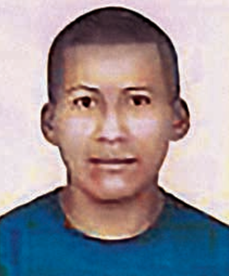
Peace Brigades International, which has helped protect the Peace Community of San José de Apartadó for many years, describes the ongoing obstacles they encounter to register their land claim that the Peace Community has cultivated for the last 25 years. Also, despite the visit of the Defence Minister in December, members of the Community continue to suffer from threats and attacks by paramilitaries, the Gaitan Self-defence Forces of Colombia. The latest death threat was received by the Community´s legal representative on Thursday 27 July.
Please take Action! Please write to Iván Velásquez, Defence Minister (usuarios@mindefensa.gov.co Twitter: @Ivan_Velasquez_ ), asking the Defence Ministry to provide protection for the Peace Community from the paramilitary Gaitan Self-defence Forces of Colombia: Please send copies to: Nancy Benítez Páez, Chargée d’Affaires, Embassy of Colombia, 3 Hans Crescent, London SW1X 0LN; email: elondres@cancilleria.gov.co
Programa Somos Defensores (We are Defenders Programme) report that the number of aggressions against human rights defenders and social leaders remained the same in the January-March period of 2023 compared to the same period for 2022, while the number killed were 31 compared to 53. The armed groups responsible for the killings were only identified in four of the 31 cases, which they note impede investigations and favour impunity.
Colombia Reports on the gradual downward trend in killings of HRDs and social leaders as well as demobilised former FARC guerrillas in the first half of 2023. They attribute the reduction to the Petro Government extending ‘to many of the country’s armed groups an opportunity to negotiate peace or demobilization, which gives them an incentive to improve their behaviour toward non-combatants’. On 6 June, the Government signed a 6-month ceasefire with the ELN (National Liberation Army) the largest guerrilla force.
The Guardian explains President Petro’s tactic of appointing controversial individuals to negotiate peace with armed groups. In November he appointed the leader of the conservative association of cattle farmers to lead talks with the FLN (National Liberation Army). He has now named Salvatore Mancuso, a former commander of the paramilitary United Self-Defence Forces of Colombia, as ‘Peace Manager’ to negotiate peace with, they assume, the largest criminal organisation known as the Gulf Clan. Mancuso has admitted to being responsible for 300 killings and his appointment has outraged many in Colombia. He remains in US custody in Atlanta.
However, the National Federation of Departments, representing the country’s regional Governors, on 4 July publicly demanded action by the Government and the military to protect communities, stating that armed groups are making a joke of President Petro’s plan for Total Peace. They claim that the country is confused by the ‘contradictory messages of negotiations and ceasefires’ and that the President’s ‘permissive’ policies are threatening democracy in Colombia. Regional elections take place in October.
BRAZIL

On what would have been Marielle Franco’s 44th birthday, Amnesty International demands that the authorities bring to justice the people who ordered her assassination. Two former military police officers have been charged with the murder of Marielle and her driver Anderson Gomez. One of them has confessed to the crime and said that former fire fighter Maxwell Simões Corrêa acted in the planning of the crime and in the protection of those involved. He has been arrested by police.
The Guardian reports that sexual violence against women and children reached new heights in 2022. The Brazilian Public Security Forum noted that ‘all the crimes that take place principally at home increased last year.’ They believe that this is the result of lockdowns and the trickling down of former President Bolsonaro’s ‘misogynistic discourse’. Another expert thought more victims were speaking out amid a growing awareness of legal protections and increasing intolerance of behaviour such as sexual harassment, which was made a crime in 2018.
Recent data from the Indigenous Missionary Council illustrate the increase in disputes and violence against indigenous Brazilians during Jaro Bolsonaro’s presidency. Land disputes increased sixfold while the number of murders increased by 83% compared to the four years of the previous administration. During his presidency, Bolsonaro reduced the land rights and protection of indigenous communities, while promoting economic development of the Amazon region.
VENEZUELA
Maria Corina Machado has been barred from participating in the Venezuelan 2024 presidential elections by the Venezuelan Comptroller General. Machado is one of the favourites to win the Venezuelan opposition’s nomination for president in the October opposition primaries. The ban itself will not impact Machado’s ability to run for the primaries, given that they are held without state backing, but it will prevent her from registering with electoral authorities to appear on the ballot in the presidential race. Machado is seen as further to the right than many of the other opposition members. She had promised, for example, to completely privatise the oil industry and has opposed relying on negotiating with Maduro.
Machado’s ban has drawn fierce criticism from foreign governments. The European Parliament described the restriction as “arbitrary and unconstitutional”. Colombian President Gustavo Petro, who has recently attempted to thaw diplomatic relations with the Venezuelan government, stated that “no administrative authority should take away political rights from any citizen”.
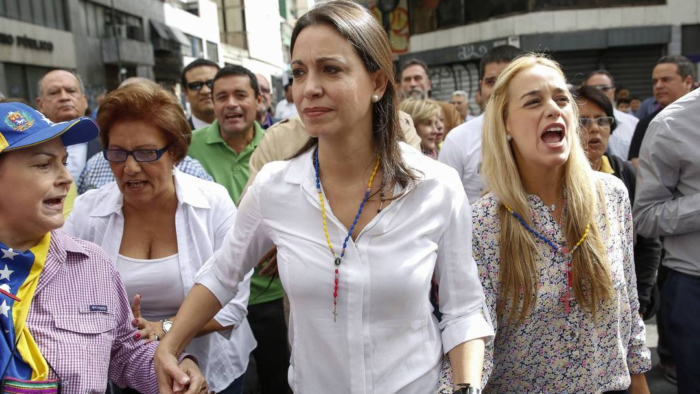
The Venezuelan vice-president and a spokesperson for the opposition, Plataforma Unitaria, met in Brussels to negotiate arrangements for the Venezuelan presidential election. Both were joined by five leaders from countries in the European Union and Latin American; those present in the room discussed how fair and free elections may be a condition for the lightening of sanctions currently imposed against Venezuela. The United States, who currently imposes the most restrictive sanctions against Venezuela, did not attend. The government and opposition last met for official negotiations in November in Mexico, in which they outlined a possible plan for the creation of a new fund, managed by the United Nations, and funded by Venezuelan assets frozen abroad, which would be used to address the humanitarian crisis in the country.
The High Commissioner for Human Rights at the United Nations, Volker Turk, has presented further information regarding human rights abuses in Venezuela. The document states that, in 2022, there have been 362 charges and 47 convictions obtained using evidence adduced under torture. Turk has also pointed to a widespread lack of access to education and health, a high number of unsafe abortions carried out due to restrictive anti-abortion laws (Venezuela currently prohibits abortion in all cases except for where the life of the mother is in danger), widespread censorship of media and internet sources, and violence perpetrated against members of the LGBTQ+ community.
Leaders of indigenous communities in Venezuela have called for the Venezuelan government to sign the Escazu agreement. The Escazu agreement, currently signed by 25 countries in Latin America, provides for governments to ensure transparency relating to climate justice issues, including in relation to indigenous communities. Groups, including SOS Orinoco, have cited multiple incidents of illegal mining in Venezuela, which have been blamed for increasing Malaria cases in the country and poisoning water supplies used by indigenous groups. The statements made coincide with the one-year anniversary of the killing of indigenous leader Virgilio Trujillo, who opposed illegal mining in those parts of Venezuela which host the Amazon rainforest. Reports state that in Venezuela, between 2013 and 2021, at least 17 environmental defenders have been killed.
ARGENTINA
We now have two Urgent Actions for Argentina. As brought to your attention 3 weeks ago, Cecilia Strzyzowski (28 years old) has been missing since June 1. Her disappearance is being investigated as a femicide; human skeletal remains have now been found. Cecilia Strzyzowski’s husband, César Sena, and his parents have been detained and charged with her murder. This Urgent Action is now an email action on the AIUK site.
Last month we highlighted the peaceful protests in Jujuy Province. Amnesty International called for an end to the violent police repression used against the protestors. But since protests began at least 130 people have been detained, including human rights defenders.
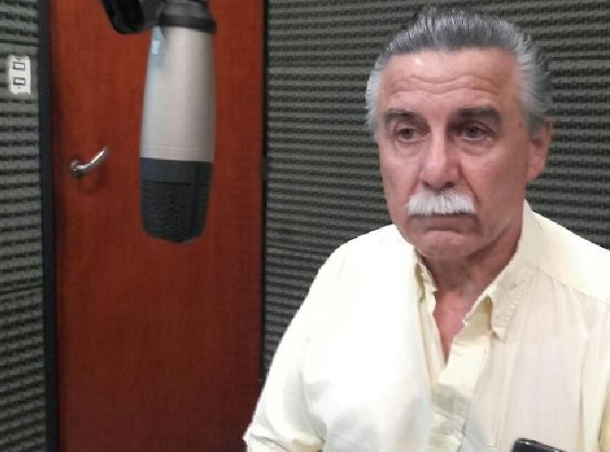
Alberto Naller is a human rights lawyer who played a very active role in the protests. He provided support and legal assistance to people detained during the mobilizations and their families. Alberto Naller was arrested on July 13th and charged with sedition; a criminal provision frequently used in Argentina to criminalize people who exercise the right to social protest.
Alberto Naller is currently under house arrest. Amnesty has issued an Urgent Action requesting charges against Alberto Nallar be dropped.
In both cases please send an email/letter to the Argentinian Ambassador:- His Excellency Mr Javier Figueroa, Embassy of the Argentine Republic, 65 Brook Street, London W1K 4AH. ambassadors-office@argentine-embassy-uk.org The full, original, Urgent Action details can be downloaded at the bottom of the pages on the AIUK site.
The organization Grandmothers of Plaza de Mayo Friday announced in Buenos Aires the finding of the 133rd grandchild taken during the military dictatorship (1976-1983). He is a nephew of Mario Roberto Santucho, founding leader of the guerrilla organization PRT-ERP, whose mother was Cristina Navajas. She was kidnapped when she was two months pregnant, on July 13, 1976, along with her sister-in-law Manuela Santucho and Alicia Raquel D’Ambra.
Nelly Tacchi, a historic human rights activist from Mar del Plata, Buenos Aires province, died last month aged 93. Tacchi was the mother of former national deputy Adela Segarra, whose partner, brother-in-law and three cousins disappeared in 1978. Her cousins Alicia and Laura Segarra were pregnant at the time of their disappearance, and both their partners disappeared as well.
ECUADOR
 On 25 July, President Lasso declared a 60-day state of emergency throughout the country’s prisons and authorised the armed forces to retake control of jails. This followed an outbreak of violence in del Litoral, the country’s largest prison, in the city of Guayaquil, and a string of protests in several prisons around the country in which inmates took nearly some 137 guards hostage. Amnesty have issued an Urgent Action calling on the authorities to ensure the health, physical safety and integrity of all detainees, proper coordination with investigative and forensic services to ensure the prompt investigation of the events, and that family members are treated with respect and precise information about the remains of their deceased relatives.
On 25 July, President Lasso declared a 60-day state of emergency throughout the country’s prisons and authorised the armed forces to retake control of jails. This followed an outbreak of violence in del Litoral, the country’s largest prison, in the city of Guayaquil, and a string of protests in several prisons around the country in which inmates took nearly some 137 guards hostage. Amnesty have issued an Urgent Action calling on the authorities to ensure the health, physical safety and integrity of all detainees, proper coordination with investigative and forensic services to ensure the prompt investigation of the events, and that family members are treated with respect and precise information about the remains of their deceased relatives.
The UN High Commissioner for Human Rights has expressed deep concern at the recent spike in violence in the country, fuelled in part by gangs vying for control of the narcotics trade, raging gang violence inside and outside the prison system, and a worrying backward step on the protection of the rights of Indigenous Peoples. On 23 July, the mayor of the coastal city of Manta was killed, while in the last few weeks, other public figures, political candidates and journalists have been attacked or received death threats. The High Commissioner called for a comprehensive reform of the criminal justice system, including prisons, and encouraged the Government to implement the social rehabilitation policy for prisoners launched in 2022 and developed with technical support from the UN Human Rights Office.
In recent weeks, there have been several confrontations between Indigenous and peasant communities and mining companies and public authorities. These incidents followed the issuance of a decree which allows companies to begin mining operations without free, prior and informed consultation with indigenous communities. The police and military have used force against the communities, leading to numerous people being injured.
PERU
 In advance of further planned demonstrations in Peru, Amnesty called on President Boluarte and her ministers to send a clear message to security forces throughout the country that it was their duty to facilitate and protect the right to peaceful protest, and that excessive use of force against demonstrators would not be tolerated. There were further clashes between protesters and the police during the demonstrations, with the police again resorting to the use of tear gas, but these seem to have passed without the serious repression that occurred in earlier protests. In her annual address, President Boluarte asked for forgiveness, on behalf of the state, from the families of protesters and police killed.
In advance of further planned demonstrations in Peru, Amnesty called on President Boluarte and her ministers to send a clear message to security forces throughout the country that it was their duty to facilitate and protect the right to peaceful protest, and that excessive use of force against demonstrators would not be tolerated. There were further clashes between protesters and the police during the demonstrations, with the police again resorting to the use of tear gas, but these seem to have passed without the serious repression that occurred in earlier protests. In her annual address, President Boluarte asked for forgiveness, on behalf of the state, from the families of protesters and police killed.
BOLIVIA
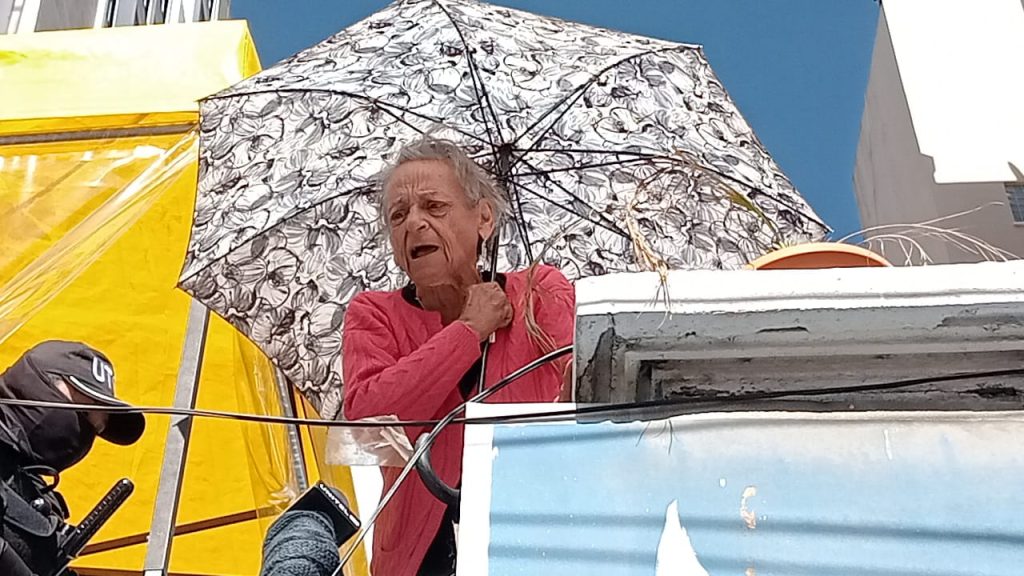 Amnesty has issued an update on the Urgent Action relating to 84-year-old human rights defender Amparo Carvajal, President of the Permanent Assembly on Human Rights in Bolivia (APDHB). Since dozens of people raided the APDHB’s office and forced staff to abandon the premises, Amparo has spent over 45 days in vigil in cold temperatures outside the offices in La Paz. On 12 July, she managed to enter the offices by way of a ladder and has been sleeping on the roof of the office for days with no access to water nor bathroom or proper shelter. The APDHB offices remain occupied and dozens of police are blocking the entrance.
Amnesty has issued an update on the Urgent Action relating to 84-year-old human rights defender Amparo Carvajal, President of the Permanent Assembly on Human Rights in Bolivia (APDHB). Since dozens of people raided the APDHB’s office and forced staff to abandon the premises, Amparo has spent over 45 days in vigil in cold temperatures outside the offices in La Paz. On 12 July, she managed to enter the offices by way of a ladder and has been sleeping on the roof of the office for days with no access to water nor bathroom or proper shelter. The APDHB offices remain occupied and dozens of police are blocking the entrance.
PARAGUAY
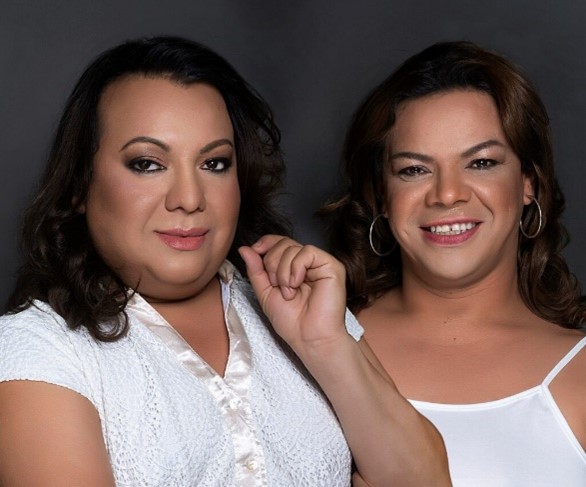 Yren Rotela and Mariana Sepúlveda, the two trans people who featured in last year’s Write for Rights campaign, have been added to AI’s Individuals at Risk portfolio. We have invited Local Groups to volunteer to take on the case on a continuing basis. Thank you to those groups who have already done so. If any other groups would like to join us in this, please email graham.minter@amnesty.org.uk.
Yren Rotela and Mariana Sepúlveda, the two trans people who featured in last year’s Write for Rights campaign, have been added to AI’s Individuals at Risk portfolio. We have invited Local Groups to volunteer to take on the case on a continuing basis. Thank you to those groups who have already done so. If any other groups would like to join us in this, please email graham.minter@amnesty.org.uk.
URUGUAY
UN experts have called on the Uruguayan government to take action to address a considerable increase in salt levels in drinking water, which is affecting over 60 percent of the population. While the government has recommended reducing household water consumption, these restrictions do not apply to large-scale consumers, such as industries using water for production. Experts have been warning for years that the expansion of concessions to water-intensive industries was leading to water pollution and shortages in the country. The UN experts noted that the human right to water implied that supply must be accessible, free of pollutants and managed sustainably.
CHILE
On October 23 2019 Mario Acuña Martínez was one of many demonstrating peacefully during the social outbreak at the time in Chile. In Buin commune, 35km south of Santiago, he tried to hide as police started firing into the air. But he was found and savagely beaten, as he lay on the ground.
Mario Acuña Martínez was in a coma for four months and suffered damage to his nerves and spinal cord, and a serious head injury. He remains bedridden and needing constant care, dependent on the generosity of others to survive financially.
Last week two former police officers were convicted of the crime of inflicting very serious injuries in the context of unlawful coercion. A former police captain was also found guilty for the illegitimate and disproportionate use of a riot gun, fired without reason or justification against the people who were demonstrating in the same place as Mario. Sentencing is early this month; Amnesty International Chile welcomes this important step for justice and human rights.
The Chilean government has announced the creation of a committee to handle the expulsion of irregular migrants and develop a biometric registry of foreigners. The measure seeks to control irregular entries, such as those occurring at the northern border with Peru, mainly of those fleeing Venezuela.
Undersecretary of the Interior, Manuel Monsalve, said the new notification mechanism will enable “the Chilean State to initiate the expulsion process…and will allow the State to be much more efficient in this task”
September 11th marks the 50th anniversary of the coup d’état that overthrew the government of President Salvador Allende. A group of military officers, led by General Augusto Pinochet, seized power ending civilian rule. We’ll have more on this next month, but various events in the UK are starting to take place commemorating this anniversary.
All the best,
South America Team – Richard Crosfield (Colombia and Brazil), David Rogers (Argentina and Chile), James Baird (Venezuela) and Graham Minter (rest of South America). And please don’t forget that you can follow us on our Facebook page and Twitter.